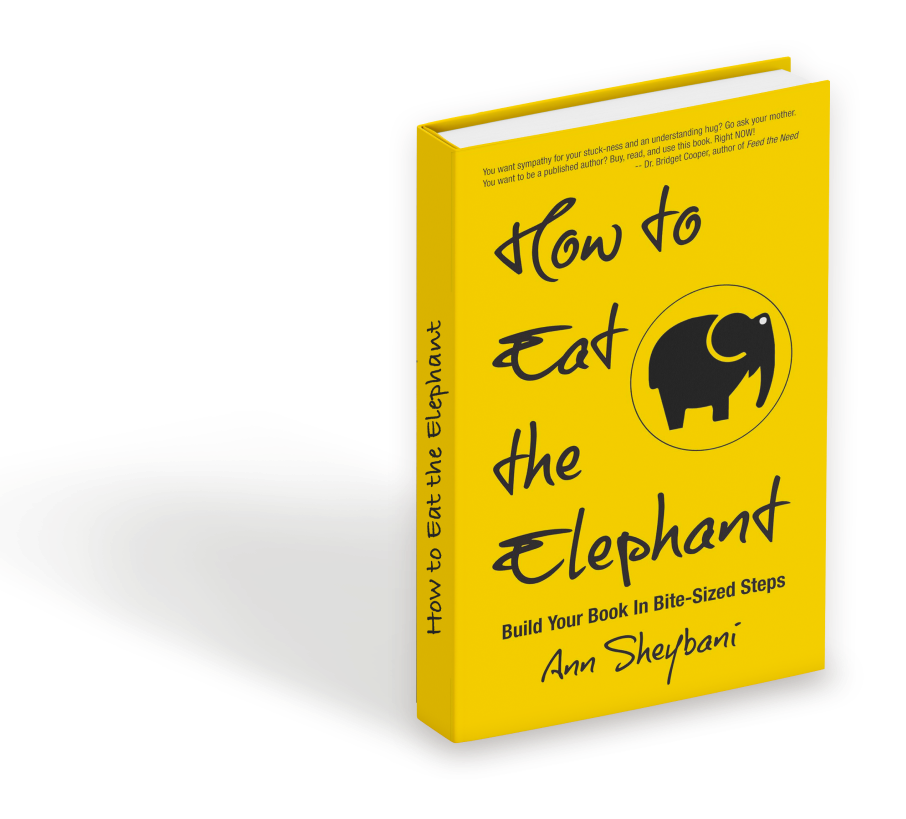Resistance. Getting yourself to do the shit you claim you want to do. We all struggle with it. Which is why I asked Kyrsten Barrett if I could share this piece as a guest post. It’s not only beautiful and clear but also relevant to anyone who wants to write a book but worries that he’s too busy to incorporate a project like that into his “crazy” schedule. (Insert any other lame excuse you notice coming out of your own mouth.)
First, take a deep breath.
Today we’re talking about the Universal Law of Sacrifice, but I promise it’s not as scary as it sounds. When you hear the word sacrifice you may immediately think of self-sacrifice/martyr stuff. That type of sacrifice actually wreaks all kinds of havoc and violates several other universal laws, but that’s a post for another day. Think of the Universal Law of Sacrifice this way… sacrifice requires that we give up something of lesser value in order to receive something of greater value in its place.
That doesn’t sound so bad, does it?
Here’s the problem, the Law of Sacrifice has a tendency to keep us stuck in ambivalence because we are so uncomfortable letting go. In general, we fear loss. We have the fear of missing out. We want to pick and choose what we let go of and control the process so as to only let go of the things we are ready and willing to release.
In order to make way for the manifestation of our intentions, though, we need to be willing to let go of whatever is necessary.
Often what needs to be released is something we value, but by definition, a sacrifice can only be made if what we are letting go of is deemed less valuable than what we believe we will gain.
Fear is exacerbated by the fact that we don’t actually know how we will feel or what life will be like when we do make the sacrifice. We believe we are swapping something we value for something we will value more, but we don’t actually know until we take the leap of faith and make the change. For example, you may decide to let go of life in the city for a retreat home in the country because you believe it will create more peace of mind and fulfillment. You don’t actually know if it will be worth it to sacrifice the things you love about the city until you take the plunge and move to the country. This kind of uncertainty makes it even more tempting to stay stuck in ambivalence and confusion. Jumping into the unknown can be exhilarating, but it can also be very frightening when we need to let go of something very valuable to us in order to leap.
It is especially difficult to let go of things that make us feel safe and secure. Our survival instincts of “fight, flight or freeze” are rooted in the oldest part of our brains known as the brain stem or reptilian brain. Letting go of ways of being that reinforce our feeling of safety and security goes against this primitive programming.
We also tend to place a high value on maintaining our freedom. We resist things that make us feel trapped, which also threatens our safety and ability to flee if necessary.
When we set out to make a change our survival instincts will likely feel threatened. If we perceive that we will need to let go of safety, security or freedom in order to make a change our brain will resist making the necessary sacrifice.
We are unable to fully commit to doing what is necessary to achieve our goals if we are in a value conflict.
The first step is to be very realistic about what is actually required to create the intended outcome.
If you want to lose weight, for example, is it possible to lose weight without changing any of your current habits?
Think about your intention and ask yourself:
Is there a way to avoid sacrificing anything? (Be honest.)
Is there a way to create this AND that? Is it possible to create an and/both experience rather than an either/or?
What values am I stuck with having to choose between?
Are these values truly in conflict?
What am I certain I would need to change?
What would I need to do?
What would I need to STOP doing?
How might these changes affect my relationships?
How might these changes affect my feeling of freedom? Of spontaneity?
How might these changes affect my feeling of safety and/or security?
If you’ve had the same intention for a long time and you’ve been struggling to create it, ask yourself:
What would I be required to give up?
Am I willing to give that up?
What do I value more?
Do I truly want what I am telling myself I want to create?
P.S. If you’re having a hard time with resistance and you suspect there’s another way to get at it, you may want to reach out to Kyrsten. Forget about all that analytical, intellectualizing, she goes straight for the gut.
Kyrsten Barrett, MAOM is an intuitive mentor, teacher, and author. Through her intuitive readings, courses, retreats and mentoring programs, Kyrsten helps her clients learn how to access their own intuitive guidance, follow their soul’s wisdom and consciously manifest their heart’s most authentic desires. Visit KyrstenBarrett.com to learn more.


